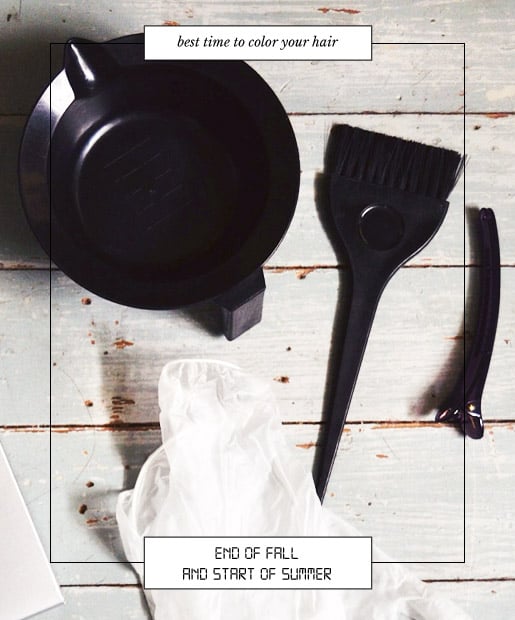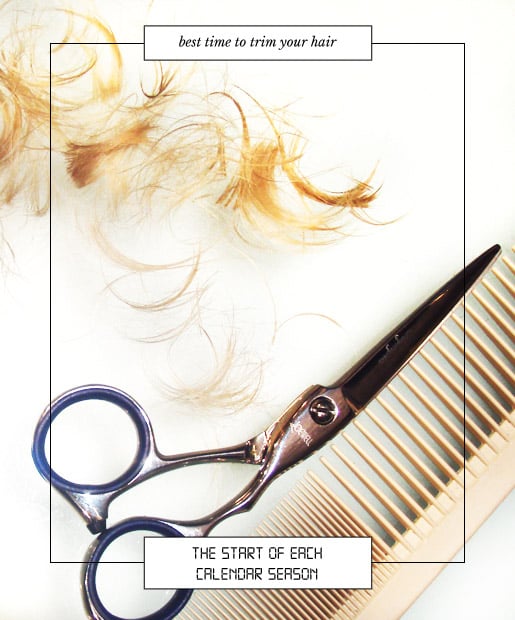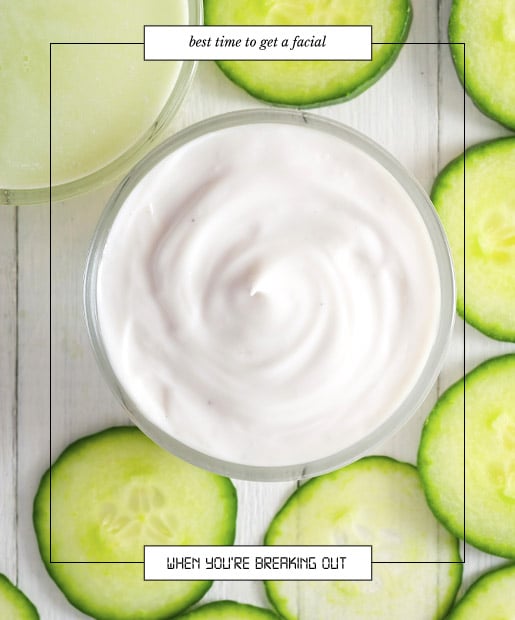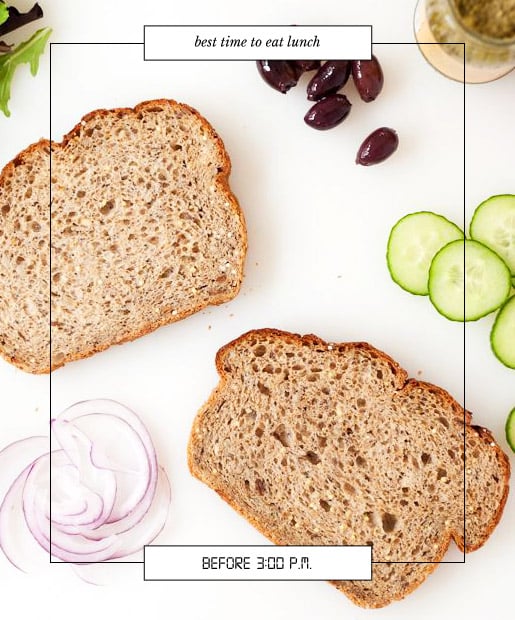When: At the end of fall or the start of summer
Why: If you want to switch up your hair color, Jenny Balding, Cutler/Redken styling and grooming expert, suggests using the outside elements to your advantage. "If you are going darker or choosing a reddish color, dyeing your hair in the fall and winter is more ideal -- the sun won't fade your hair like the summer months will. If you're looking to go lighter, do so in the summer, as the sun may lighten up the hair anyway."
Why: If you want to switch up your hair color, Jenny Balding, Cutler/Redken styling and grooming expert, suggests using the outside elements to your advantage. "If you are going darker or choosing a reddish color, dyeing your hair in the fall and winter is more ideal -- the sun won't fade your hair like the summer months will. If you're looking to go lighter, do so in the summer, as the sun may lighten up the hair anyway."
When: At the start of each season
Why: If you live in an area where weather conditions are relatively extreme in the winter and summer (hint: not Southern California), Balding says it's especially important to schedule routine trims at the start of each season. "Your hair gets drier during colder seasons, so a trim just before the winter will prevent split ends from doing worse damage." Likewise, a trim just before summer will get rid of split ends before the hair gets hit with damage from the sun and salt or chlorinated pool water, says Balding. This scheduling will also get you into the habit of getting regular trims for healthier hair year-round.
Why: If you live in an area where weather conditions are relatively extreme in the winter and summer (hint: not Southern California), Balding says it's especially important to schedule routine trims at the start of each season. "Your hair gets drier during colder seasons, so a trim just before the winter will prevent split ends from doing worse damage." Likewise, a trim just before summer will get rid of split ends before the hair gets hit with damage from the sun and salt or chlorinated pool water, says Balding. This scheduling will also get you into the habit of getting regular trims for healthier hair year-round.
When: When you're breaking out
Why: Stop popping those pimples! According Marcia Kilgore, esthetician and owner of Bliss Spa in New York City, the best time get a facial is when you're slightly broken out with whiteheads. Whiteheads are a telltale sign that bacteria is spreading through your pores, and extraction could prevent those whiteheads from becoming full-fledged pimples.
If it's too tricky to time your facials to your breakouts, schedule facials the week before or the week during your period, when skin is most sensitive.
Why: Stop popping those pimples! According Marcia Kilgore, esthetician and owner of Bliss Spa in New York City, the best time get a facial is when you're slightly broken out with whiteheads. Whiteheads are a telltale sign that bacteria is spreading through your pores, and extraction could prevent those whiteheads from becoming full-fledged pimples.
If it's too tricky to time your facials to your breakouts, schedule facials the week before or the week during your period, when skin is most sensitive.
When: Before 3 p.m.
Why: Researchers at Bringham and Women's Hospital in collaboration with the University of Murcia and Tufts University found that individuals who ate lunch after 3 p.m. lost significantly less weight and had lower estimated insulin sensitivity (a risk factor for type 2 diabetes). Researchers also found that subjects who chose to lunch later in the afternoon were more likely to skip breakfast -- the meal that jump-starts the metabolism for the rest of the day and prevents you from stuffing your face (and spiking your insulin levels) in the afternoon.
Why: Researchers at Bringham and Women's Hospital in collaboration with the University of Murcia and Tufts University found that individuals who ate lunch after 3 p.m. lost significantly less weight and had lower estimated insulin sensitivity (a risk factor for type 2 diabetes). Researchers also found that subjects who chose to lunch later in the afternoon were more likely to skip breakfast -- the meal that jump-starts the metabolism for the rest of the day and prevents you from stuffing your face (and spiking your insulin levels) in the afternoon.







